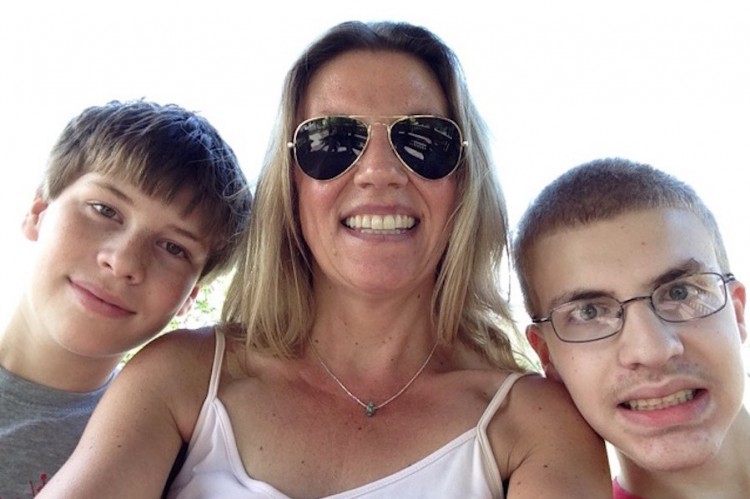“I don’t know how you do it!” As a parent raising a teenager with autism, I’ve heard this a lot.
Well, here’s how we do it.
It’s just like being parents of typical kids but with more “oomph.”
We work harder for those “normal moments.” The times he wants to take a walk by himself. Or gets his own lunch. Or works out a problem with his brother. Or remembers to feed his fish without me reminding him. Or washes his face all by himself, twice a day, despite the fact that he hates light amounts of water on his face.
These moments are the result of a lot of practice with me. Practice without me. Practice again with me. Practice next to me, as he walks new routes by himself and I ask myself, “What was he wearing just in case he wanders off course and I need to call the police?”
Or as I feel impatient doing the same thing hundreds of times and have to breathe the patience back into myself.
Reminders. Stopping the reminders then quickly starting them again because he isn’t ready for no reminders yet. Complaints. Struggle. Then less struggle. Then no struggle.
Then pride.
And then celebrating how proud he is of himself and his accomplishments! Celebrating with him and his brother, who is just as proud of him as we are. Treasuring those smiles from all of us. Trying not to cry as we see his huge smile and not wanting to embarrass him. Usually crying anyway but just a teeny bit.
Oh, and those hormone fluctuations? Yes, they’re just like your kids, except the highs are higher and the lows are lower. And louder.
TJ suddenly crying — loudly. Like a little kid. And he doesn’t know why. And if he does know why, he is crying too hard to tell us. Deep squeezes as he cries because the pressure helps to calm him down. Deep breathing that we have practiced a thousand times. If we’re home, snuggling the dog because, “Pup always makes me feel better, Mom.” If we aren’t at home, I’ll smile politely as you stare, but not for too long as I squeeze this 6-foot-tall lanky boy with a mustache.
Those social struggles? Not an issue for us. He doesn’t hang out with friends. He doesn’t ask girls out (he did write a letter to a girl once but never mailed it). He is a rule follower. “I’ll never take drugs and alcohol, Mom, they are bad for you! I’m a non-caholic!”
He doesn’t get phone calls, which is OK since the sound from the phone going straight into his ear has always bothered him sensory-wise. There’s no social drama at school because he puts 100 percent of his energy into getting through his day and doing his work, because to him, that’s what he’s there for. He can relax when he gets home. Sometimes he will have a “lunch bunch” with some friends (the guys love him, thank goodness) but someone has to remind him to ask them about their interests, too, or he will talk about animals or “Family Guy” the entire time. (By the way, we never let him watch “inappropriate” shows, but somehow he watches them anyway! But these things are good for his social life, since all of the kids his age watch them and they talk about it together with lots of laughs.)
When I ask TJ if he wants to hang out with a friend or go to a dance, he always says, “No thanks, Mom. I’m not a hang out kind of guy.”
When he sees a friend driving by with a white-knuckled parent in the passenger seat, he is so happy for that friend. When I ask if he is ready to learn how to drive, he says, “Not yet, Mom. I’m afraid I’ll fall asleep or get distracted. I’m not ready.”
And when he has a question about anything, even something embarrassing, he always asks. He is not embarrassed. He will grin a bit, but he’s not embarrassed. He doesn’t ask his friends for information on dating, or sex or the changes his body is going through. He asks us. And we always answer honestly and openly and follow up a couple of days later after he’s had time to think about it.
So getting through this teenage thing is basically the same thing that parents of neurologically typical kids experience, right?
Just with a little more “oomph.”

